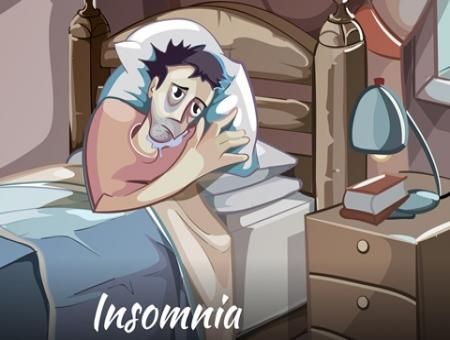
Taking care of mental health during lockdown
By Dr. Madhusudan Singh Solanki in Mental Health And Behavioural Sciences
May 14 , 2020 | 4 min read
Your Clap has been added.
Thanks for your consideration
Share
Share Link has been copied to the clipboard.
Here is the link https://www.maxhealthcare.in/blogs/taking-care-mental-health-during-lockdown
Due to the unprecedented Covid-19 pandemic, the whole country is in complete lockdown since almost two month now. The lockdown has definitely slowed the spread of the virus and the situation remains uncertain but under control so far. People are witnessing a completely new and different situation which they have had never expected in their lifetime and hence no one was mentally prepared for this. What began with the joy of getting a chance to spend more time with family and oneself and a break from the daily race from morning to evening has now turned into boredom, stress, anxiety and uncertainty for most people. For most people it is also coupled with financial stress and uncertainty regarding career and a possibility of economic slowdown translating into business losses and job losses in future. Now top it up with the possible fear of catching the covid-infection and possible death. Watching news full of deaths and spreading infection is also magnifying the fears many fold. Parents at home with kids are now at loss thinking what to do with so much of time they now have to spend with their kids as they were never prepared for it, similarly kids who were busy morning to evening with school, friends, outdoor games, tuitions are now forced to direct all their energy in the home with only their already lost parents at their disposal. All this is definitely adding to a lot of stress build up and is bound to affect your mental health if you are not taking care to keep it in good shape. People who are vulnerable for anxiety are finding their anxiety levels going up, similarly people vulnerable to depression are at increased risk for an episode of depression. Many people who are stuck lonely away from family are experiencing the damaging effects of long term isolation on their mental health which may include frustration, easy irritability, sleep issues, amotivation, helplessness, low mood, anxiety and may proceed to frank depression.
Now how to deal with this? What one needs to do to keep one’s mental well being intact along with physical health. Well the first step is full acceptance of the situation, that life is currently like this only and there is no point in denying it or resisting it. Then take solace in the fact that you are not alone in this and almost the whole world is experiencing the same thing. Now when acceptance is there, let’s think how can we make it better. Changing your perspective is important, you know in pre-covid times life was happening and in our race from morning to evening how many times did we really experience it? How many times you sat and thought about yourself, took a pause and pondered over what are we doing and where are we heading and what for? Does it make sense or not? or we were just running because others were running? So this pandemic has given you the time to ponder over it, to change gears and to set your priorities right, this has given you a golden chance to experience your post retirement life now and make course corrections so that you don’t regret it when the actual retirement comes. For people who were never into anything except work and socializing are those who are especially finding the lockdown unbearable and they must use this time to develop some new interests and hobbies (like gardening, cooking, reading, music, arts etc) which will not only help them navigate this time easily but also give them purpose and meaning for later life without work and kids. Keep a regular sleep and wake up time, walk inside the home atleast 5 min in every hour that way you will be walking for an hour in 12 hours without even going for a walk. Exercise as per your ability and liking. Do yoga and pranayama and meditate with soothing music. If you are working from home, keep a separate area as your work place and try to stick to a schedule so that work from home doesn’t become office work all the time. If you are lucky enough to have your parents or elders with you encourage them to talk and share their life stories with you, that way they will feel valued and cared for and you will know them better, in fact you all can sit together and hear their life-stories. If you have kids then you can share your life stories, your childhood tales and experiences with them. Play some indoor games like carrom, Ludo or cards or the good old antaakshari together. Avoid watching news whole day instead watch other interesting programs and movies that bring joy and excitement to your life. Now even after all this if you notice certain changes in yourself or anybody around you, you should seek help. For example anxiety may manifest as constant worry about catching the infection, sleep disturbance, palpitations, suffocation like feeling, dizziness, sense of impending doom, worrisome attitude, fear and restlessness. Depression can manifest as persistent low mood, lack of interest in things, sleep disturbance, appetite changes, feeling hopeless, helpless or worthless and suicidal thoughts or acts. So if you notice any of these changes or any other mood or behavioural changes get in touch with a psychiatrist or psychologist as timely treatment helps in faster recovery. Fortunately these days online video consultation is allowed and you can avail online consultation if any mood or behavioural change is overwhelming you. Remember there is no health without mental health.

Written and Verified by:
Related Blogs

Dr. Sameer Malhotra In Mental Health And Behavioural Sciences
Nov 07 , 2020 | 7 min read

Dr. Prashant Gupta In Mental Health And Behavioural Sciences , Psychiatry
Nov 08 , 2020 | 5 min read
Blogs by Doctor

How Reading is a Stress Buster
Dr. Madhusudan Singh Solanki In Clinical Psychology
Feb 06 , 2020 | 1 min read
Most read Blogs
Get a Call Back
Related Blogs

Dr. Sameer Malhotra In Mental Health And Behavioural Sciences
Nov 07 , 2020 | 7 min read

Dr. Prashant Gupta In Mental Health And Behavioural Sciences , Psychiatry
Nov 08 , 2020 | 5 min read
Blogs by Doctor

How Reading is a Stress Buster
Dr. Madhusudan Singh Solanki In Clinical Psychology
Feb 06 , 2020 | 1 min read
Most read Blogs
- CAR T-Cell Therapy
- Chemotherapy
- LVAD
- Robotic Heart Surgery
- Kidney Transplant
- The Da Vinci Xi Robotic System
- Lung Transplant
- Bone Marrow Transplant (BMT)
- HIPEC
- Valvular Heart Surgery
- Coronary Artery Bypass Grafting (CABG)
- Knee Replacement Surgery
- ECMO
- Bariatric Surgery
- Biopsies / FNAC And Catheter Drainages
- Cochlear Implant
- More...





